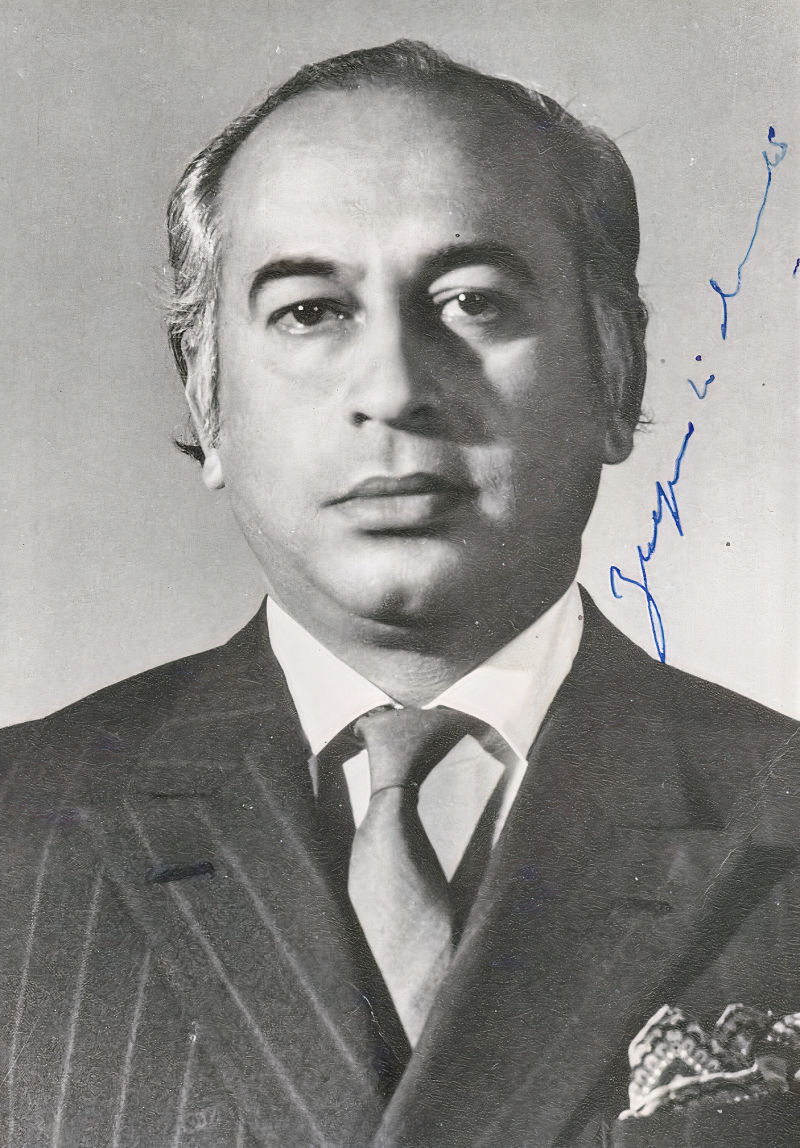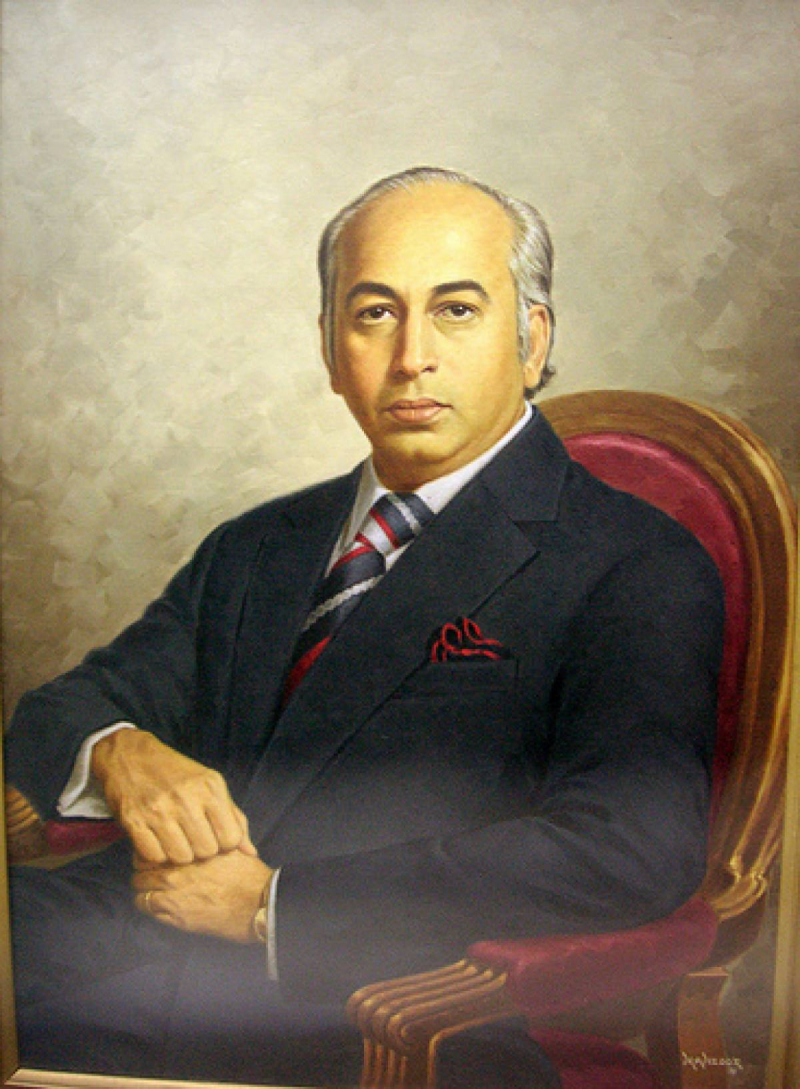Zulfiqar Ali Bhutto
Zulfiqar Ali Bhutto (5 January 1928 - 4 April 1979), also known as Quaid-e-Awam (People's Leader), was a Pakistani barrister, statesman, and politician who served as Pakistan's ninth prime minister from 1973 to 1977 and the first to be elected through general elections, and prior to that as the country's fourth president from 1971 to 1973. Bhutto is regarded as a leadership icon for his efforts to preserve and lead the country following the Bangladesh Liberation War. In 1973, his government drafted the Pakistan Constitution, which is still in effect today. He was also the founder and chairman of the Pakistan People's Party (PPP) until his execution in 1979. Bhutto's execution is widely regarded as a judicial assassination ordered by then-dictator General Zia-ul-Haq.
Born in Sindh and educated at the Universities of California, Berkeley, and Oxford, Bhutto trained as a barrister at Lincoln's Inn before entering politics as a cabinet member of President Iskander Mirza, and was assigned several ministries during President Ayub Khan's military rule beginning in 1958. Bhutto was appointed Foreign Minister in 1963 and was a supporter of Operation Gibraltar in Kashmir, which led to war with India in 1965. After the Tashkent Agreement ended the war, Bhutto had a falling out with Ayub Khan and was fired from the government. Bhutto founded the PPP on a socialist platform in 1967 and ran in the 1970 general elections won by President Yahya Khan. While the Awami League won a majority of seats nationally, the PPP won a majority of seats only in West Pakistan (where the Awami League did not win any seats); the two parties were unable to reach an agreement on power sharing and a new constitution. Many in West Pakistan, including President Yahya Khan and Z. A. Bhutto, saw the Awami League's Six Point Movement as a way to divide the country. The refusal of Bhutto and Yahya to accept a Bengali as Prime Minister of Pakistan resulted in uprisings and movements in East Pakistan, and counter-actions by the Army, ordered by Yahya Khan and supported by Bhutto, eventually resulted in the formation of Bangladesh. Following Pakistan's defeat in the war against Bangladesh-allied India in December 1971, Bhutto assumed the presidency and declared an emergency. When Bhutto began rebuilding Pakistan, he stated that his goal was to "rebuild confidence and hope for the future."
After signing the Simla Agreement in July 1972, Bhutto had recovered 93,000 prisoners of war and 5,000 square miles of Indian-held territory. He improved relations with China and Saudi Arabia, acknowledged Bangladesh, and hosted the second Organization of the Islamic Conference in Lahore in 1974. During his presidency, parliament unanimously approved a new constitution in 1973, after which he appointed Fazal Ilahi Chaudhry President and assumed the newly empowered office of Prime Minister. He was also instrumental in launching the country's nuclear program. Bhutto's nationalization of many of Pakistan's fledgling industries, healthcare, and educational institutions, on the other hand, resulted in economic stagnation. Following the unrest caused by the dissolution of provincial feudal governments in Balochistan, Bhutto also ordered an army operation in the province in 1973, resulting in thousands of civilian casualties. Despite civil unrest, the PPP easily won parliamentary elections in 1977. The opposition, however, claimed widespread vote rigging, and violence erupted across the country. Bhutto was deposed in a military coup on July 5, that same year, by his appointed army chief Zia-ul-Haq, before being controversially tried and executed by Pakistan's Supreme Court in 1979 for authorizing the murder of a political opponent.
Bhutto remains a divisive figure, praised for his nationalism and secular internationalist agenda while being chastised for intimidating political opponents and violating human rights. He is widely regarded as one of Pakistan's greatest leaders, and his party, the PPP, remains one of the country's largest, with his daughter Benazir Bhutto twice elected Prime Minister, and his son-in-law and Benazir's husband, Asif Ali Zardari, serving as President.










